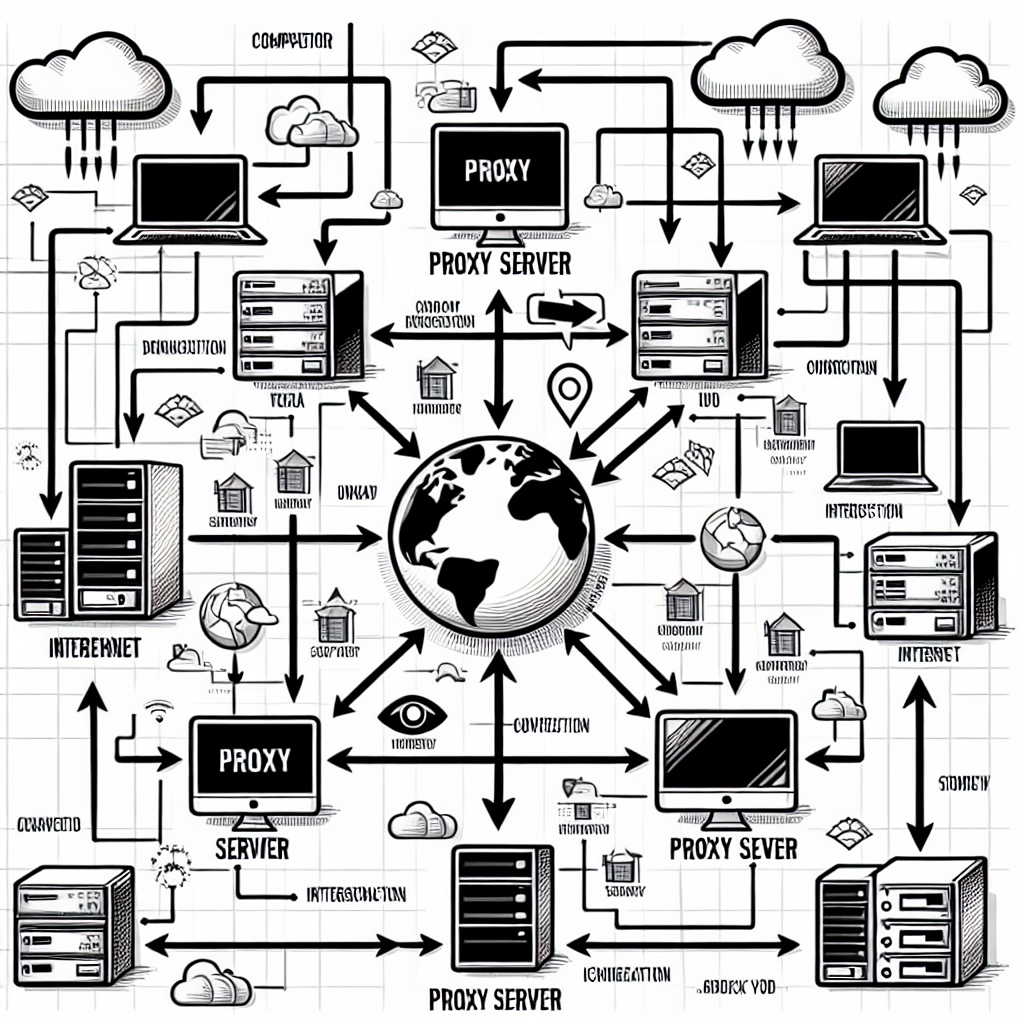How Do Proxy Servers Work?
In the vast digital landscape we traverse daily, where information flows like rivers and connections are forged at the speed of light, proxy servers stand as the unsung heroes of our online journeys. Imagine, if you will, a wise old librarian who acts as a gatekeeper to an expansive library filled with knowledge. This librarian not only knows where every book is located but also can shield you from the chaotic noise of the outside world. In much the same way, a proxy server serves as an intermediary between you—the seeker of knowledge—and the vast universe of the internet.
How Does It Work?
At its core, a proxy server functions as a middleman, a bridge between your device and the websites you wish to visit. Picture yourself at a bustling marketplace, where each vendor represents a different website. Instead of approaching each vendor directly, you send your requests to the librarian. The librarian then goes to the vendors on your behalf, gathers the items you seek, and brings them back to you.
Here’s how this unfolds in the digital realm:
-
Request Forwarding: When you want to visit a website, your request is sent to the proxy server instead of going directly to the website. This is like asking the librarian for a particular book.
-
Fetching Data: The proxy server then forwards your request to the target website and retrieves the data you wish to access—just as the librarian would collect the book from the shelf.
-
Returning Information: Finally, the proxy server sends the website's response back to you. This is akin to the librarian handing you the book, all the while keeping the bookshelves neat and the noise of the marketplace at bay.
Why Is It Important for Proxy Users?
The importance of proxy servers cannot be overstated, especially in a world where privacy and security are paramount.
-
Anonymity: Just as a librarian helps keep your identity secret in a busy library, a proxy server masks your IP address, making it harder for outsiders to track your online activities. This is particularly valuable in an age where data privacy is often compromised.
-
Content Access: Many websites impose geographical restrictions on their content. A proxy can help you bypass these barriers, allowing you to access information as if you were browsing from a different location—much like the librarian who has access to every section of the library, even those reserved for special visitors.
-
Improved Performance: Proxies can cache (store) frequently accessed web pages, allowing for faster load times on subsequent visits. It’s akin to the librarian keeping popular books handy for quick retrieval instead of searching the entire library each time.
A Simple, Real-World Example
Imagine you’re a student in a small town, eager to research a topic that’s only available on a global website. Unfortunately, your local internet connection is slow, and the website is blocked in your region.
Enter the proxy server—a service offered by your tech-savvy friend. You send your request to this proxy, and it reaches out to the global website, retrieving all the information you need. Not only does your friend’s proxy server speed up the process by caching the data, but it also allows you to access content that would otherwise be off-limits, all while keeping your online identity cloaked in the shadows.
In this dance of digital connectivity, proxy servers empower users—granting them access to a world of information while safeguarding their identity. Just as the wise old librarian curates knowledge for those who seek it, proxy servers curate the internet, ensuring that our quest for information remains unimpeded and our privacy intact. So, as you journey through the digital realm, remember the proxy, a humble yet powerful ally on your path to enlightenment.

Comments (0)
There are no comments here yet, you can be the first!